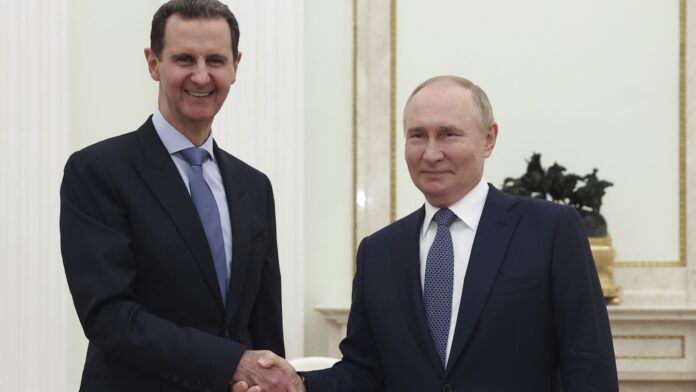
Russian President Vladimir Putin has granted asylum to Syria’s ousted president Bashar al-Assad, Deputy Foreign Minister Sergei Ryabkov confirmed on Monday. This development follows a swift rebel offensive that r, marking a significant turning point in Syria’s 13-year civil war.
Speaking to NBC News in an interview aired on Tuesday, Ryabkov revealed that Assad had been securely transported to Russia after Putin approved the asylum request. “He is secured, and it shows that Russia acts as required in such an extraordinary situation,” Ryabkov stated. However, he declined to elaborate on the logistics of Assad’s transfer, emphasizing the sensitive nature of the matter.
The fall of Assad represents a major setback for Russia and Iran, who had been pivotal allies in propping up his regime. Both nations had intervened militarily to sustain his grip on power against the demands of Western governments calling for his resignation. Despite these efforts, rebel forces have taken control, leaving Syria under a new interim leadership.
On Tuesday, Syria’s interim prime minister, backed by the rebel coalition, announced that he would serve as the country’s caretaker leader. This leadership transition signals a new phase for Syria, which has endured years of devastating conflict.
When asked about the possibility of extraditing Assad for trial, Ryabkov pointed out that Russia is not a signatory to the International Criminal Court (ICC). This stance ensures that Assad will remain under Russian protection for the foreseeable future.
Russia’s support for Syria dates back to the Cold War, when it recognized the country’s independence from French colonial rule in 1944. Syria later became a key Soviet ally, deepening its strategic ties with Moscow. These historical connections underscore Russia’s continued involvement in Syrian affairs.
In a separate matter, Ryabkov indicated that Russia remains open to negotiating another prisoner exchange with the United States, similar to the August swap involving journalist Evan Gershkovich and former U.S. Marine Paul Whelan. “A new deal would be a healthy step forward, especially at the beginning of the next administration,” Ryabkov remarked, while refraining from divulging specific plans.
This dramatic series of events places Russia once again at the center of global geopolitical discourse, as its role in sheltering Assad and facilitating potential diplomatic moves underscores its strategic ambitions.
